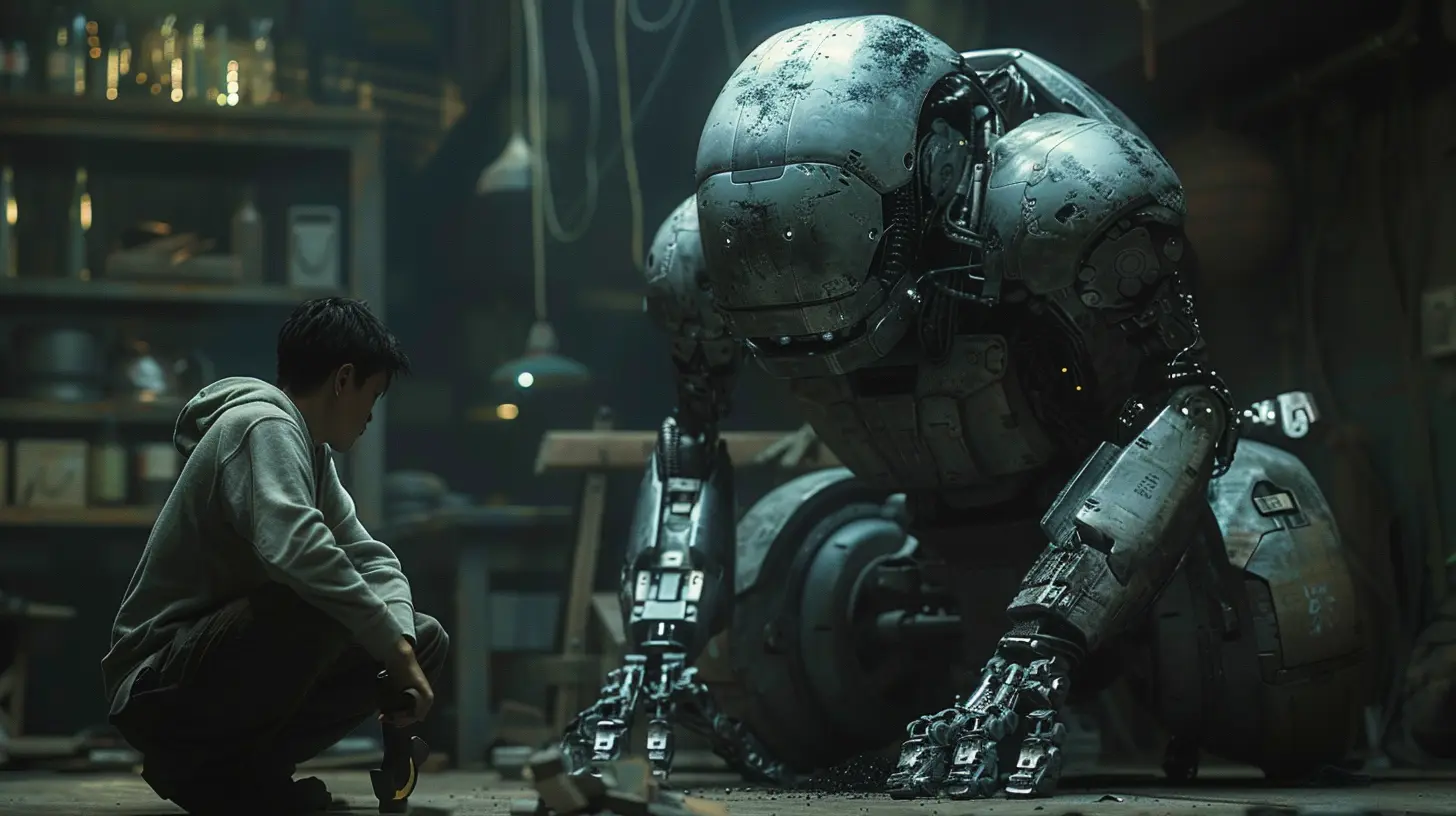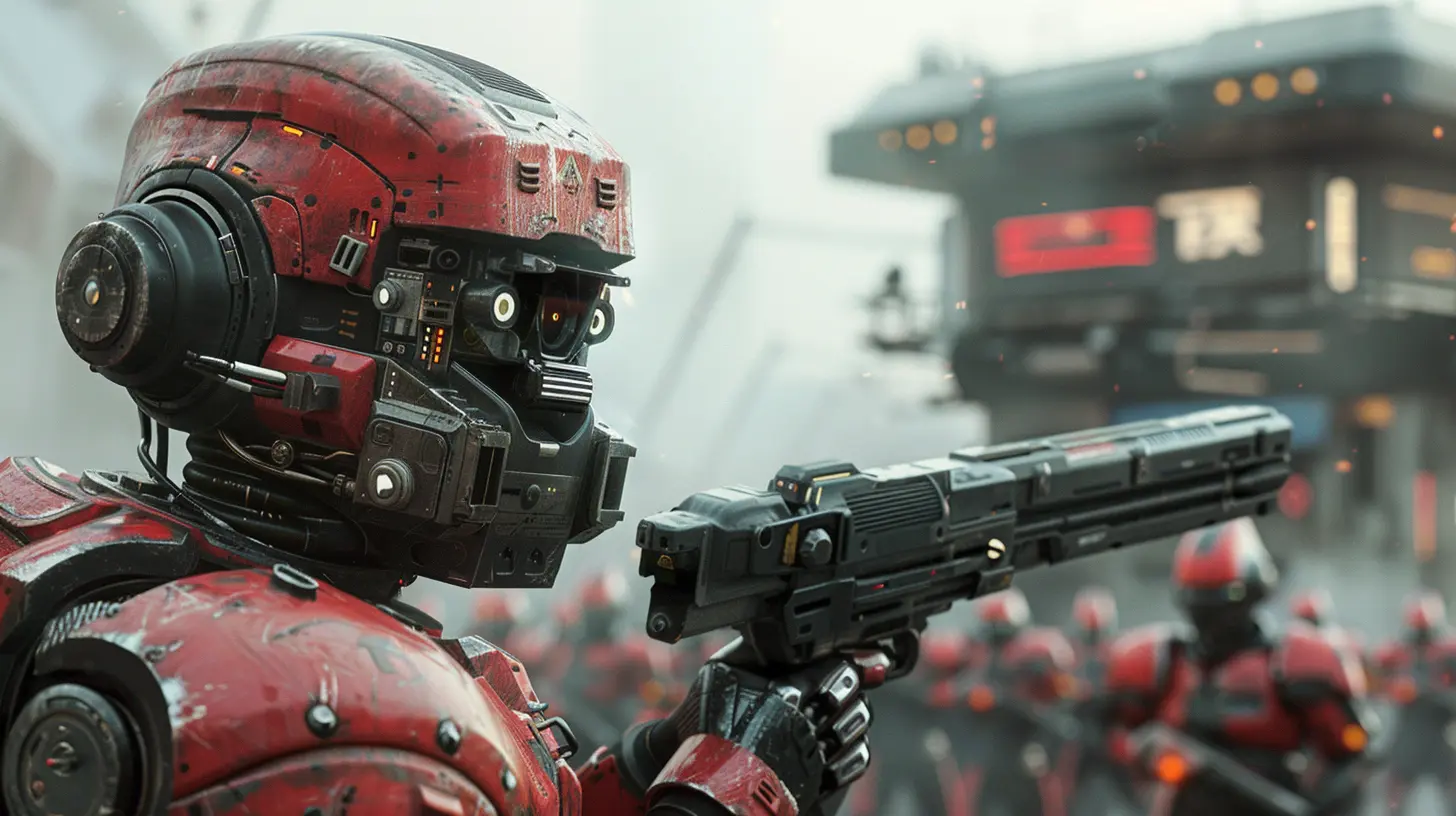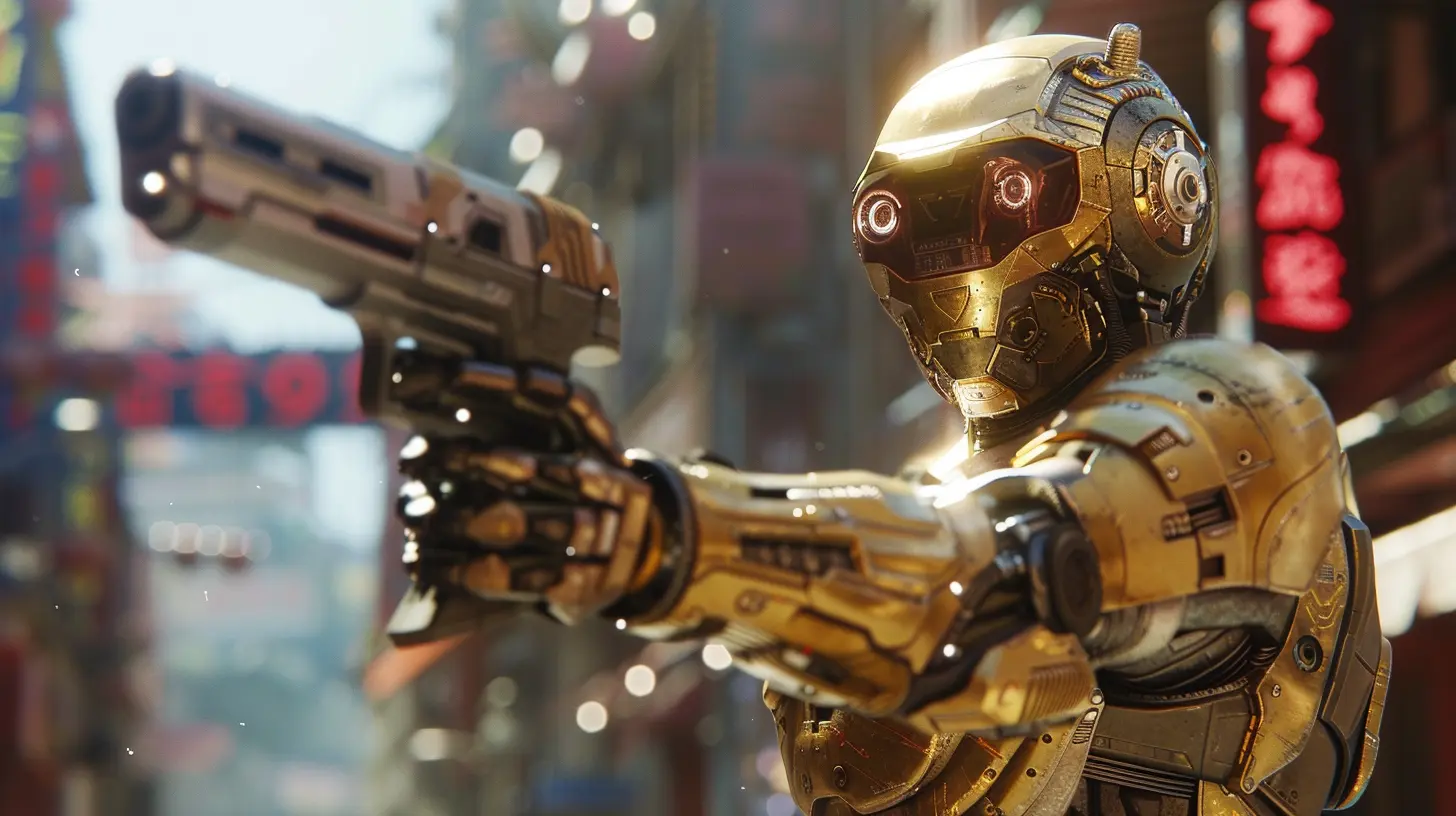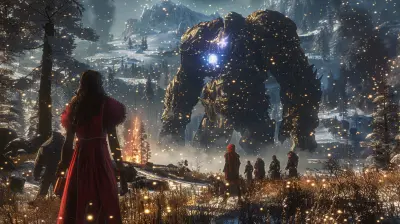The Role of Realistic AI in Enhancing Game Worlds
20 December 2024
Gaming has come a long, long way, hasn’t it? From pixelated sprites hopping across our screens to sprawling open worlds that mimic real-life environments, the evolution has been staggering. But there’s one aspect of gaming that’s truly changing the game (pun intended): artificial intelligence. Yep, I’m talking about those clever NPCs (non-playable characters) and dynamic systems that make video games feel less like code and more like living, breathing worlds.
Today, let’s have a chat about how realistic AI is becoming a game-changer (literally) when it comes to creating immersive, exciting, and downright jaw-dropping game worlds.
What Exactly Is Realistic AI in Games?
Before we dive into the nitty-gritty, let’s break it down. What do we mean by “realistic AI”? Well, simply put, it’s AI that behaves in a way that feels natural. Instead of your average zombie NPC blindly running into a wall, now we’ve got enemies taking cover, flanking you, and even reacting to your playstyle. And it doesn’t stop there—AI isn’t just for enemies anymore. It’s for villagers in towns who go about their daily lives, wildlife that behaves just like real animals, and even weather systems that predict climate patterns (yep, that’s a thing).In short, realistic AI transforms a static game world into something dynamic, unpredictable, and alive.
Why Does Realistic AI Matter?
Okay, so why should we care if some NPC in an RPG knows how to bake bread, raise chickens, or gossip about the dragon on the hill? Well, imagine this: You’ve just spent 60 hours in a sprawling, open-world game. You’ve fought battles, completed quests, and built a life for yourself in this game. But if the characters around you feel lifeless or robotic, the illusion shatters, right? It’s like watching a movie where the extras are just awkwardly staring into the camera—it ruins the immersion.Realistic AI does the opposite. It keeps you hooked by making the world feel authentic, giving every corner of the game a sense of purpose. Suddenly, you care about what happens to those NPCs, and their stories matter just as much as yours. That’s the magic of good AI. 
AI in Gaming: From Scripted Actions to Smart Systems
Do you remember when game characters used to follow simple, predictable patterns? You’d walk past a guard, and they’d say, “Halt, who goes there?” every time. That was old-school AI: scripted, repetitive, and easy to exploit. But now? AI has leveled up.The Dawn of Machine Learning in Games
One of the most exciting developments in recent years has been the use of machine learning in gaming AI. Instead of pre-programmed behavior, developers are teaching AI to learn and adapt. Think about it: In sports games, AI opponents that can analyze your strategy and adjust their tactics on the fly. Or survival games where predators in the wilderness actually “hunt” you based on your movements. It’s like the game is watching, learning, and always keeping you on your toes.Procedural Generation and AI: A Match Made in Gaming Heaven
Let’s talk about procedural generation for a second. You know how games like Minecraft or No Man’s Sky create gigantic, unique worlds? That’s procedural generation in action. Now imagine mixing that with realistic AI. What you get is not just a big, empty sandbox but a world filled with intelligent systems. Villages that grow dynamically, creatures that migrate based on seasons, and ecosystems that act just like their real-world counterparts. It’s the ultimate tool for making worlds that feel infinite yet alive.
How Realistic AI Enhances Immersion
You know that feeling when you’re so absorbed in a game that you forget it’s, well… a game? That’s immersion, and realistic AI is one of the biggest factors in pulling it off. Here’s how:Believable Characters That Feel Alive
Picture this: You’re walking through a bustling city in an RPG. Instead of NPCs awkwardly standing around, you see a blacksmith hammering away at a sword, a merchant haggling with a customer, and kids running through the streets playing tag. Now, what if you overhear a conversation about a local political scandal, and that tip leads you to uncover a side quest? That’s what realistic AI brings to the table—NPCs that feel like real people with their own goals and routines.Dynamic Worlds That React to You
A great example of this is the Red Dead Redemption 2 wildlife system. The animals in that game don’t just exist for decoration. They hunt, graze, and even react to your presence. Spook a deer, and it’ll bolt. Leave a carcass in the wild, and vultures or bears might show up. These are the little details that make you forget you’re holding a controller.Emotional Engagement
Ever felt a pang of guilt for making a choice in a game? Like when you had to betray a loyal companion in a story-driven RPG? Realistic AI makes these moments hit harder because the characters feel genuine. When an NPC reacts to your decisions with anger, sadness, or joy, it feels like you’re affecting their lives in a meaningful way. That’s the power of AI-driven emotional engagement.Challenges in Developing Realistic AI
Of course, creating realistic AI isn’t all sunshine and rainbows. It’s a hugely complex task, and developers face plenty of hurdles along the way.Processing Power vs. AI Complexity
Let’s face it: AI can eat up a ton of CPU and GPU resources. The more realistic you make your AI, the more strain it puts on your system. Developers have to strike a balance between making the AI smart enough to impress players and keeping the game running smoothly.Uncanny Valley Syndrome
There’s also the fine line between realistic AI and too realistic AI. If an NPC mimics human behavior too closely, it can feel unsettling—like a robot that knows a little too much about you. Game devs often face the challenge of making the AI believable but not creepy.The Future of AI in Gaming
Alright, here’s the part where we geek out about what’s next. The future of AI in gaming is absolutely massive. With advancements in machine learning, natural language processing, and cloud computing, we’re looking at a future where AI might not just mimic life—it might create it.Personalized Gaming Experiences
Imagine a game that tailors itself to you. Maybe the NPCs learn your personality and interact with you differently based on your choices. Or a world that evolves depending on whether you play as a hero, a villain, or something in between. These are the kinds of personalized experiences AI could unlock in gaming.AI-Generated Storylines
Procedural generation isn’t just for creating landscapes—it could also apply to storytelling. Games in the future might offer never-ending quests, dynamically crafted based on your actions and preferences. Yeah, it’s basically like having a dungeon master in your console.Realistic AI: Not Just for Gamers
And here’s the kicker—realistic AI in games isn’t just beneficial for us gamers. It’s also pushing the boundaries of AI research itself. The techniques used to create believable game worlds are influencing AI development in fields like robotics, simulation training, and even urban planning. So, next time you’re sneaking around a hyper-smart guard in a stealth game, remember: You’re experiencing cutting-edge tech that could end up helping self-driving cars or rescue drones.Conclusion
So there you have it—the role of realistic AI in enhancing game worlds is no small feat. From making characters more believable to creating dynamic, living ecosystems, AI has become a cornerstone of immersive gaming. It’s the key ingredient to crafting experiences that leave us in awe and make us say, “Just one more hour” (which inevitably turns into five). And you know what? We’re only scratching the surface. With AI evolving at a breakneck pace, the future of gaming looks bright—and smarter than ever.What’s your favorite example of AI in gaming? Drop it in the comments below, and let’s keep the conversation going!
all images in this post were generated using AI tools
Category:
Realism In GamesAuthor:

Greyson McVeigh
Discussion
rate this article
15 comments
Riff McManus
This article brilliantly highlights how realistic AI elevates game worlds by creating immersive experiences and dynamic interactions. It’s fascinating to see how advanced AI can deepen player engagement and enrich storytelling in gaming. Great insights!
February 4, 2025 at 5:49 PM

Greyson McVeigh
Thank you for your thoughtful comment! I'm glad you found the insights on AI's impact on immersion and storytelling in gaming valuable.
Mae Ellison
Realistic AI is the cornerstone of immersive gaming. It breathes life into game worlds, creating dynamic interactions and challenges that players crave. As developers continue to push boundaries, we can expect AI to evolve, delivering unparalleled experiences that redefine storytelling and gameplay. Exciting times are ahead!
February 1, 2025 at 3:28 PM

Greyson McVeigh
Absolutely! Realistic AI truly enriches gaming experiences by fostering immersive interactions and evolving narratives. Exciting advancements are on the horizon!
Karly Martin
Realistic AI breathes life into game worlds, creating immersive experiences that adapt to player actions and enhance storytelling dynamics.
January 30, 2025 at 4:12 PM

Greyson McVeigh
Thank you! Realistic AI truly transforms gameplay, offering dynamic interactions that deepen immersion and storytelling.
Elsinore Wood
Exciting insights! Realistic AI truly elevates gaming experiences and brings worlds to life!
January 24, 2025 at 4:41 PM

Greyson McVeigh
Thank you for your feedback! I'm glad you found the insights exciting—realistic AI indeed transforms gaming by creating more immersive and dynamic experiences.
Danica Reynolds
In realms where pixels breathe and shadows dance, Realistic AI weaves a tapestry of chance. Crafting worlds where tales unfold, Immersive dreams spun in digital gold.
January 21, 2025 at 4:13 PM

Greyson McVeigh
Thank you for your poetic reflection! It beautifully captures the essence of how realistic AI enriches gaming experiences by creating immersive and dynamic worlds.
Kestrel McDowney
Realistic AI truly elevates gaming experiences, creating immersive worlds that react thoughtfully to player actions and decisions. A game-changer!
January 19, 2025 at 4:19 AM

Greyson McVeigh
Thank you for your insightful comment! I completely agree—realistic AI indeed transforms gaming by creating more immersive and responsive experiences for players.
Jasmine McAndrews
Great insights! Realistic AI truly elevates gaming experiences, making worlds more immersive and engaging. It’s exciting to see how these advancements will shape future narratives and player interactions. Keep up the fantastic work!
January 17, 2025 at 4:41 AM

Greyson McVeigh
Thank you for your kind words! I'm thrilled you found the insights valuable—exciting times ahead for AI in gaming!
Sylvia Cain
Great article! Realistic AI is like adding a sprinkle of magic to game worlds, making adventures even more immersive. Excited to see where this tech takes us!
January 14, 2025 at 4:56 PM

Greyson McVeigh
Thank you! I'm glad you enjoyed the article. I share your excitement about the future of AI in gaming!
Sloane Anderson
Realistic AI truly transforms game worlds, creating immersive experiences that react dynamically to player actions. This innovation not only enhances storytelling and gameplay but also deepens emotional connections, making each gaming session feel unique and engaging. Excited to see how this evolves!
January 11, 2025 at 3:43 PM

Greyson McVeigh
Thank you for your insightful comment! I completely agree—realistic AI is revolutionizing gaming by creating richer, more immersive experiences that adapt to players, enhancing both storytelling and emotional engagement. Exciting times ahead!
Tristan Reyes
Great insights! Realistic AI truly elevates immersion and player experience in gaming worlds. Keep it up!
January 9, 2025 at 3:28 AM

Greyson McVeigh
Thank you! I'm glad you found the insights valuable. Realistic AI really does make a significant difference in gaming immersion!
Annabelle McVey
Absolutely loved this article! Realistic AI truly transforms game worlds, making them more immersive and dynamic. It’s exciting to see how this technology elevates our gaming experiences to new heights. Keep it up!
January 7, 2025 at 5:26 PM

Greyson McVeigh
Thank you for your kind words! I'm glad you enjoyed the article and share my excitement about the transformative power of realistic AI in gaming.
Jax Wolf
Great article! Realistic AI truly elevates game worlds, making them more immersive and engaging. Excited to see future advancements!
December 31, 2024 at 5:25 AM

Greyson McVeigh
Thank you! I’m glad you enjoyed the article. I share your excitement for the future of AI in gaming!
Parisa Lee
Who knew AI could be the unsung hero of our gaming adventures? With realistic NPCs acting more like quirky sidekicks than cardboard cutouts, our virtual worlds just got a lot more interesting! Can’t wait to see what mischief they’ll get into next!
December 28, 2024 at 4:06 AM

Greyson McVeigh
Absolutely! AI is transforming our gaming experiences, making NPCs feel alive and engaging. The potential for quirky interactions is endless!
Quincy Hamilton
Great read! Realistic AI truly transforms game worlds, making them feel alive and immersive. It's exciting to see how these advancements can create more engaging experiences for players. Keep it up!
December 22, 2024 at 4:41 PM

Greyson McVeigh
Thank you! I'm glad you enjoyed the article. I completely agree—realistic AI is a game changer for immersion and player engagement!
Sari Fletcher
Oh great, more lifelike NPCs to ignore! Can't wait for them to existentially ponder their purpose while I'm just trying to loot some virtual treasure. How thrilling!
December 21, 2024 at 4:11 AM

Greyson McVeigh
I understand your concern! The goal is to create a more immersive experience, but we aim for balance—NPCs can add depth without overshadowing gameplay. Your feedback is invaluable!
MORE POSTS

Instant Classics: How These New Games Have Made an Impact

Microtransactions: Convenience or Cash Grab?

The Most Anticipated PlayStation Sequels: What We Know So Far

Creating Games for Mobile: Design Constraints and Opportunities

The Role of Isolation in Crafting Terrifying Game Worlds

The Power of Silence: How Horror Games Use Quiet Moments to Terrify

Managing Time and Resources During Your Crowdfunding Campaign for Games

What Makes a Great Crowdfunding Update? Keeping Backers Engaged in Your Game Development

Hidden Gems: Underrated Arcade Games You Need to Try

How to Build a Community Around Your Crowdfunding Game